【FOCUS】Fight against COVID-19, Remain City Resilient (2)
The outbreak of COVID-19 pandemic has exerted a globally dramatic impact on people's daily lives and the
urban development since 2019. Despite hardships, many cities remain resilient,
seeking every opportunity to recover in the post-COVID-19 era. Under the
guidance of Sustainable Development Goals, many cities have developed
innovative and practical initiatives, bringing a wealth of experience of pandemic response. Today's In Focus will show you five
initiatives of urban innovations that display resilience during the pandemic.
ROSARIO, ARGENTINA
Alliance for Local Food Policy Transformation in the Post-Pandemic
World
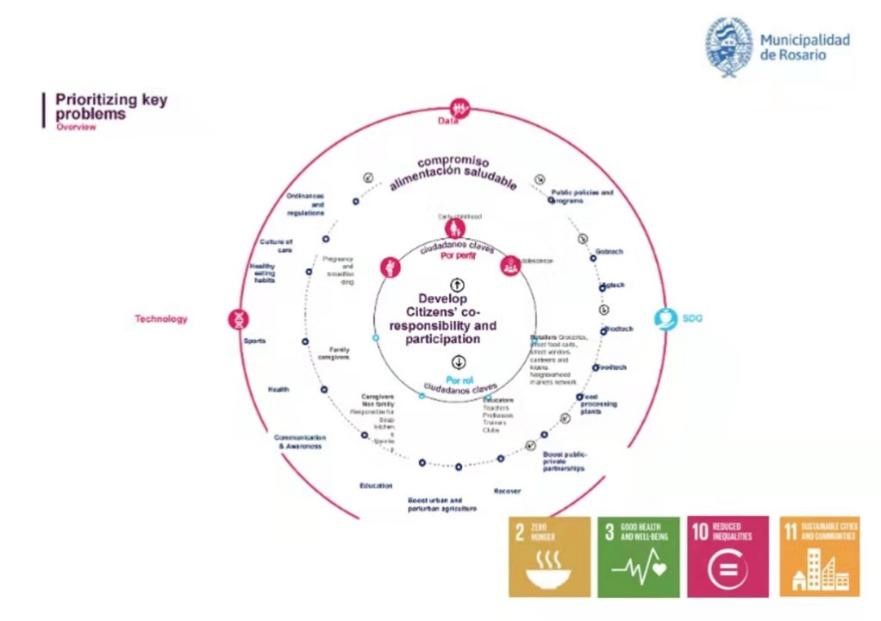
The COVID-19 pandemic has increased
Rosario’s public spending on food demand and the need
for food assistance. The surge in demand has made it imperative to establish
coordinated and short-term food security actions and identify the structural
demand for food. As a result, the city fosters a coordinated and integrated
social policy with a multi-dimensional approach to ensure an adequate, healthy,
and diverse food supply to the most vulnerable members of the population.
The city does this in three ways. Firstly, it integrates multidisciplinary perspectives to look into its food security issue and acknowledges the root causes and inter-relations. Secondly, the city develops ongoing monitoring and assessment instruments to ensure greater consistency and better planning to enhance the impact and positive outcomes. Thirdly, the city is coordinating a new institutional scheme to serve as a platform for the solutions implemented in the territory. The initiative has already benefited 300,000 residents.
Learn more: http://www.guangzhouaward.org/a/1430.html?lang=en
BOGOTA, COLOMBIA
Bogota’s Temporary Cycle-Tracks Strategy Is Contributing to Face the
COVID19, Fostering Bicycle Usage as a Social Distance Instrument
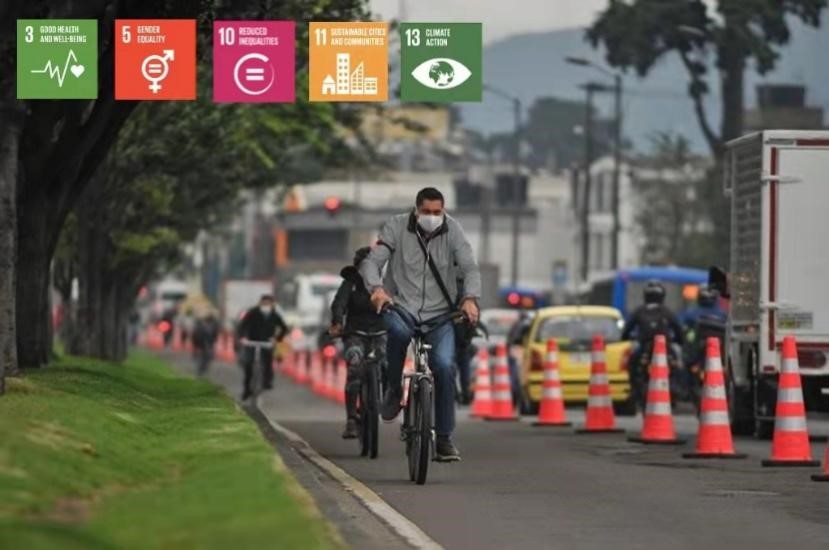
BOGOTA is considered as the Latin American capital of bicycles. Over
the past 20 years, the city has created 550 kilometers of bicycle lanes and
introduced cycling-promotion events, including the famous weekly Ciclovía and
the yearly Day without Cars.
During the pandemic, the city created 76 kilometers of temporary
bicycle lanes and reduced the city-wide speed limit to reduce the risk of
transmission through public transportation. New laws, regulations, and
authorisations have been issued to expand bicycle space capacity in parking
lots and install bicycle parking furniture in public spaces to encourage the
use of bicycles. This initiative also has a gender focus to it—more than 300
officers from the National Police are assigned to monitor the lanes in order to
protect female cyclists from encountering sexual harassment.
Three months after its launch, 3.2 million cyclists were recorded. Since the bicycle is an affordable vehicle, this initiative directly benefits the low-income population. Cycling improves their access to job opportunities, saves money, and enhances their ability to meet basic needs. It has also contributed to reducing carbon emissions and promoting healthy habits. Due to its success, it has inspired similar practices in neighbouring and overseas cities such as Medellin, Mexico City, and Berlin.
Learn more: http://www.guangzhouaward.org/a/1441.html?lang=en
JEONJU, REPUBLIC OF KOREA
Three Good Campaigns and Layoff-Free City Project
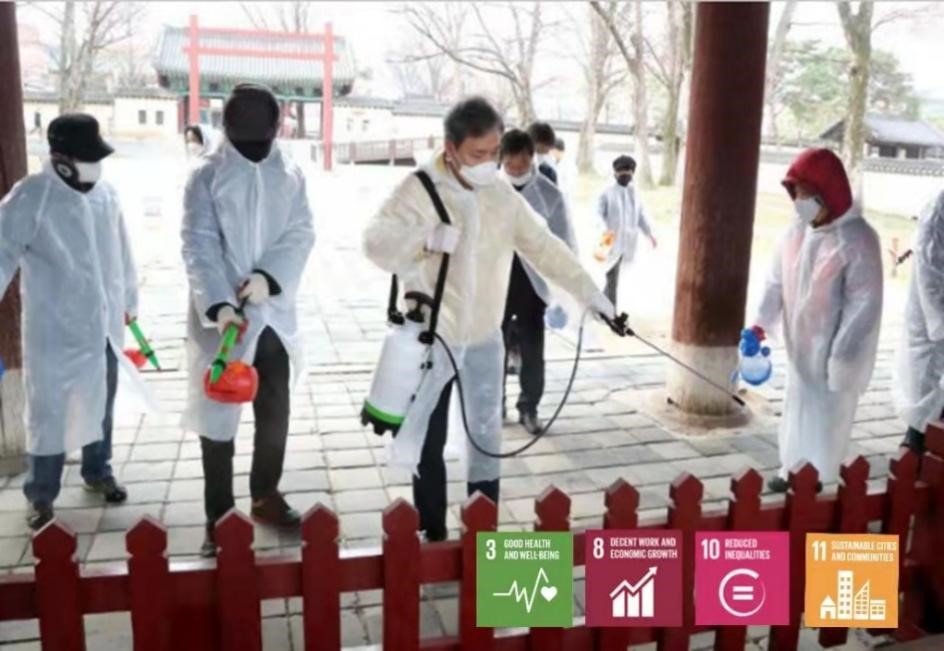
The economy of the South Korean city of Jeonju was placed into a state
of lockdown due to the COVID-19 pandemic. With tightened preventive measures,
consumer confidence was on a continuous slide. As a result, companies faced
hardships, and unemployment surged.
In response, Jeonju rolled out its COVID-19 Reaction Policy, covering public health, economic growth, and job security areas. Key projects include the Three Good Campaigns (Good Leaser Campaign, Good Sanitation Campaign, and Good Consumption Campaign) and Layoff-Free City Project. These projects make the residents take on the habit of sterilization and provide companies and workers with a variety of benefits and support. The policy and its projects have been welcomed by the residents of Jeonju.
Learn more: http://www.guangzhouaward.org/a/1462.html?lang=en
GDYNIA, POLAND
The Learning City at Home —— Municipal Units in Contact with Gdynia’s
Citizens
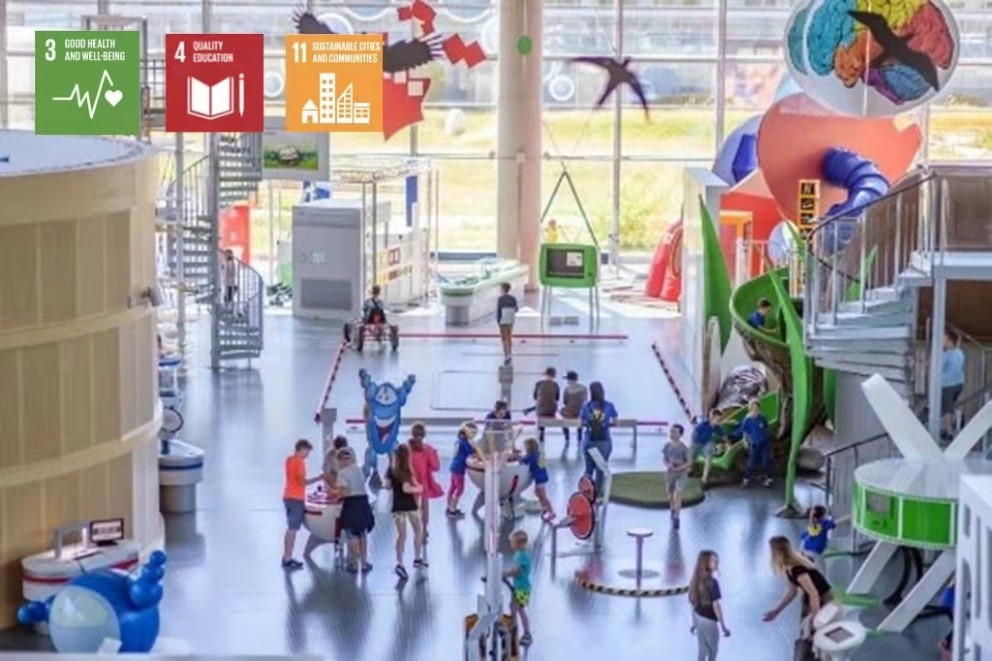
Although COVID-19 subjected the polish city of Gdynia to lockdown, the
city has found a way to connect with over 24,000 inhabitants: encouraging them
to go online instead to access the various services, including culture,
education, science, art, and social issues.
In designing this online offer, the city collected and analysed the
residents’ opinions through its website, social media, and phone calls –
particularly with seniors. Based on their feedback, all municipal units
cooperate with local and regional experts from different sectors to curate live
streamed or recorded content, which was then disseminated on their website and
social media.
The most visible result of the project is the popularisation of alternative channels for reaching and supporting residents. The Web has become an equal platform for the city to present a diverse package of services. In the longer run, the initiative may help build trust and closeness between the residents and the institutions / NGOs.
Learn more: http://www.guangzhouaward.org/a/1438.html?lang=en
DUBAI, UNITED ARAB EMIRATES
Role of Dubai Municipality in Mitigating Impact of COVID-19 Pandemic
via Artificial Intelligence
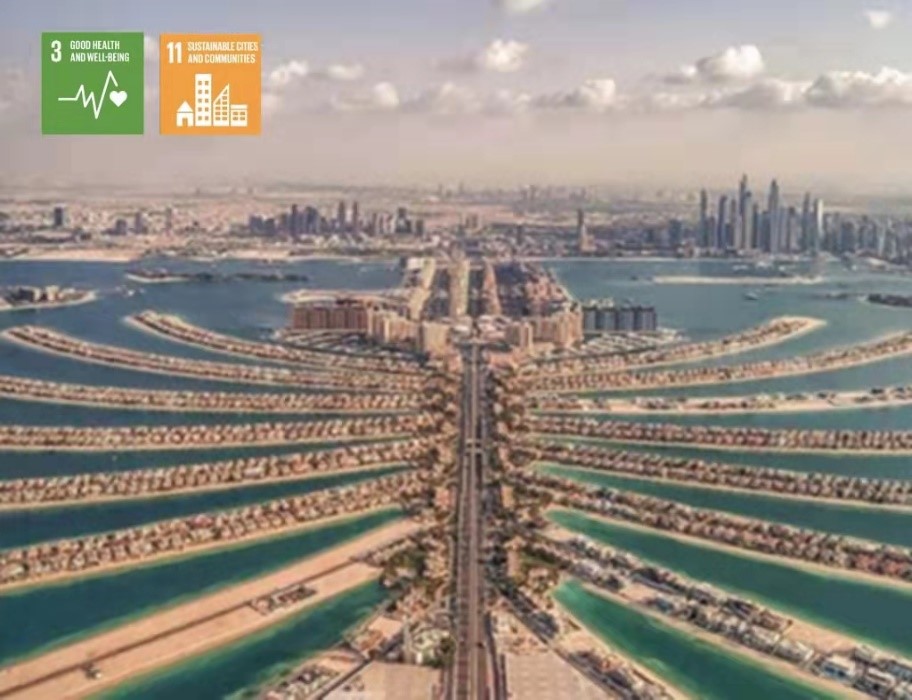
Dubai employed the force of artificial intelligence to combat this
highly contagious disease.
The city connected land plans with designated areas for specific uses
(e.g., residential, commercial, and recreational) and open spaces to develop a
“heat map.”
The city used it to monitor covid-affected areas and follow up on the
compliance of parks, beaches, shopping centres, salons, and other
establishments with precautionary measures. This real-time information helped
the city make accurate predictions as well as proper decisions, such as
imposing lockdown and identifying priority areas of the National Disinfection
Programme launched by the UAE.
During its national programme implementation, Dubai used smart and
modern disinfection techniques such as drones and modified motorcycles to
sterilise mosques, schools, and other facilities. In addition to the smart
disinfection vehicles, the city also customised and promoted its smart
application, Montaji, to report fake consumer products.
The AI-powered heat map, in combination with smart sterilisation techniques, enabled 100% completion of the National Disinfection Program. This contributed to the prevention of Covid-19 cases, especially in densely populated areas, and, further, allowed reopening of these areas and the resumption of economic activities.
Learn more: http://www.guangzhouaward.org/a/1480.html?lang=en


 In Focus | World Cities Day: People-Centred Smart Cities
In Focus | World Cities Day: People-Centred Smart Cities City Stories | Fostering community resilience: A lifeline for the Central African Republic
City Stories | Fostering community resilience: A lifeline for the Central African Republic In Focus | Innovative Education, Empowering Futures
In Focus | Innovative Education, Empowering Futures




















 Tel: +86 020 3780 4434
Tel: +86 020 3780 4434 Email: info@guangzhouaward.org
Email: info@guangzhouaward.org Adress: Unit 01-7, 28th Floor, No. 7, Chunrong 3rd Road, Tianhe District, Guangzhou, Guangdong, 510000, PRC
Adress: Unit 01-7, 28th Floor, No. 7, Chunrong 3rd Road, Tianhe District, Guangzhou, Guangdong, 510000, PRC




